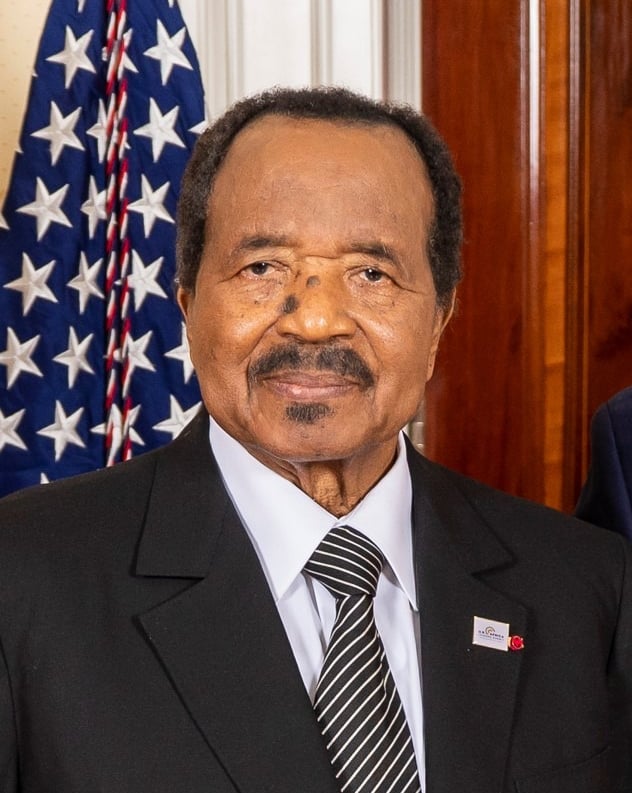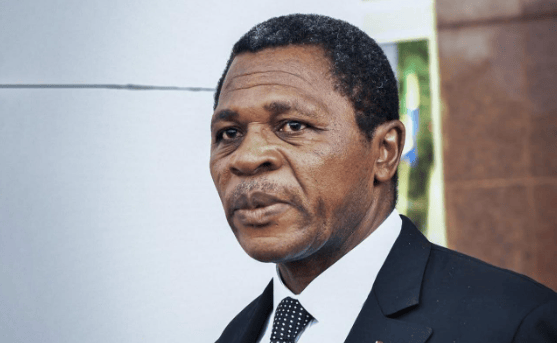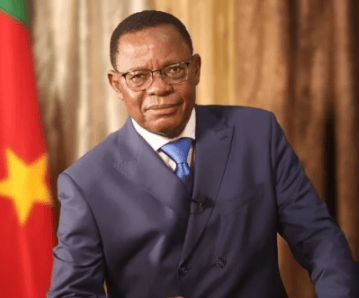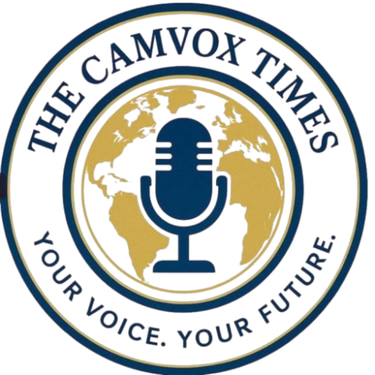Government
Institutions
The 2025 presidential campaign strategy of His Excellency Paul Biya is shaping up to be one of the most deliberate and calculated in Cameroon’s modern history. At its core, the ruling Cameroon People’s Democratic Movement (CPDM) is leaning heavily on elite endorsements, identity-based political outreach, and grassroots mobilization.
Drawing on political science theories such as Resource Mobilization Theory, Social Identity Theory, and Cleavage Theory, analysts argue that the CPDM’s engagement with Catholic bishops, Muslim leaders, traditional chiefs, municipal mayors, and other elite actors positions the incumbent advantageously against a fragmented opposition. Comparative insights from Barack Obama’s 2008 U.S. campaign further underscore the relevance of strong ground game strategy in both advanced and developing political systems.
The Strategic Timing
With only eight weeks before Cameroon’s presidential election on October 12, 2025, the CPDM has shifted into an advanced phase of campaign strategy. Rather than relying solely on rallies or reactive statements, the party has launched a highly targeted Community Engagement Model that blends governance continuity with carefully cultivated elite endorsements.
Elite Endorsements as Catalysts
The past week has produced an unprecedented alignment of powerful socio-political institutions in favor of President Biya:
Catholic Church Leadership (August 8, 2025): Bishops reaffirmed their support for Biya, citing his moral leadership and peacebuilding role. In Social Capital Theory terms, this endorsement mobilizes one of Cameroon’s most organized and credible networks.
Muslim Religious Leaders (August 11, 2025): Nearly thirty Imams from all ten regions pledged unified support at the Unity Palace, strengthening ties with Muslim constituencies in both the north and urban south.
Traditional Chiefs of the Western Region (August 12, 2025): Chiefs reaffirmed their “historic pact” with Biya, promising massive voter mobilization in a region long associated with opposition leader Maurice Kamto.
National Mayoral Meeting: Mayors from across Cameroon gathered at the Unity Palace, endorsing Biya’s message of national unity, decentralization, and municipal development. Their role as territorial opinion leaders makes this endorsement particularly influential for local voter turnout.
Erosion of Opposition Strongholds
The ethno-religious bases of opposition leaders appear increasingly vulnerable under this wave of endorsements:
Maurice Kamto’s Western Region power base is symbolically weakened by the chiefs’ alignment with Biya.
Northern Muslim constituencies influenced by Issa Tchiroma Bakary and Bello Bouba Maigari face a major blow with the Imams’ support for Biya.
Catholic Church backing neutralizes opposition claims to moral leadership in predominantly Christian areas.
Through the lens of Cleavage Theory (Lipset & Rokkan, 1967), these moves disrupt long-standing ethno-religious voting patterns, undermining the opposition’s ability to consolidate identity-based support.
Lessons from Obama’s 2008 Ground Game
Observers note that Biya’s approach mirrors Barack Obama’s groundbreaking 2008 campaign in the U.S., which emphasized relational organizing through trusted community figures.
In Cameroon’s case, replacing neighborhood volunteers with bishops, Imams, traditional chiefs, and mayors elevates this concept into a high-authority model, boosting both message credibility and voter persuasion.
Advisory: Converting Endorsements into Votes
Analysts warn that endorsements alone are not enough. For maximum impact, the CPDM must:
Deploy region-wide campaign structures with clear accountability.
Mobilize diaspora communities with credible leadership.
Integrate digital warfare capabilities to dominate social media and counter misinformation.
Embed endorsements into campaign calendars for sustained visibility.
Monitor grassroots metrics closely to adapt strategies in real time.
Conclusion
The CPDM’s campaign showcases a sophisticated blend of coalition-building and cross-identity endorsements, forming a powerful nationwide electoral network. Meanwhile, the opposition remains fragmented, weakened by the erosion of its traditional strongholds.
With methodical execution, these endorsements could translate into decisive victory. For now, President Paul Biya appears serene, prepared, and strategically two steps ahead.
References
Lipset, S. M., & Rokkan, S. (1967). Party Systems and Voter Alignments: Cross-National Perspectives. New York: Free Press.
Obama, B. (2006). The Audacity of Hope. New York: Crown Publishers.
Tarrow, S. (1998). Power in Movement: Social Movements and Contentious Politics. Cambridge: Cambridge University Press.
Putnam, R. D. (2000). Bowling Alone: The Collapse and Revival of American Community. New York: Simon & Schuster.
Norris, P. (2004). Electoral Engineering: Voting Rules and Political Behavior. Cambridge: Cambridge University Press.


Paul Biya’s 2025 Campaign Strategy: Elite Endorsements, Identity Outreach, and Ground Game Mobilization
Government Updates and Major Policy Announcements
Dr. Julius B Taka - Editor-in-Chief
August 15, 2025


MINISTER ATANGA NJI DENOUNCES POLITICAL MANIPULATION AND ACTS OF DIPLOMATIC VANDALISM
Dr. Julius B Taka - Editor-in-Chief
August 08, 2025
Yaoundé, Cameroon / Washington, D.C. — In a “Très Urgent” (Very Urgent) communiqué released on August 5, 2025, H.E. Paul Atanga Nji, Cameroon’s Minister of Territorial Administration, condemned a series of false, irresponsible, and totally unfounded statements made by self-styled political actors seeking to manipulate public opinion in the lead-up to the country’s 2025 presidential elections.
The Minister expressed concern over “pseudo-party presidents” who have turned their political parties into rental vehicles (Yango) to serve the private interests of a once-respected man, now driven by personal ambition. These individuals, he said, have abandoned national duty for political manipulation and institutional denigration.
Key Highlights from the Minister’s Message:
Praise for Dignified Political Leaders
The Minister saluted with respect and republican spirit those political leaders whose candidacies were not retained, applauding their maturity and commitment to peace. “To them, I send a message of encouragement,” he stated.
Condemnation of Hate Speech
The Minister warned Cameroonians not to fall prey to calls for hatred, division, and anarchy being spread by activists hiding abroad.
A Call for National Unity and Political Vigilance
The communiqué emphasized the importance of institutional respect and national cohesion at this critical junction in Cameroon’s democratic journey.
“Men may come and go, but political parties and ideas survive trials,” the Minister reminded the public. “Other elections will come, and those whose candidacies were rejected will again have their opportunity to serve the Cameroonian people.”
Editorial Note: The CamVox Times echoes this urgent call for calm, maturity, and institutional respect, especially as the nation navigates the crucial months ahead of the 2025 presidential elections.


Dr. Julius B Taka - Editor-in-Chief
August 08, 2025
A narrative has recently resurfaced across social media attempting to recast Maurice Kamto as a misunderstood hero — a principled man, falsely accused of aiding the constitutional erosion of Cameroon.
We at The CamVox Times believe in fair debate, but truth must never be sacrificed at the altar of political theatre. It is time to re-examine Maurice Kamto’s record — not with sentiment, but with historical honesty and civic clarity.
Maurice Kamto Regime Insider: The Biya Government Years (2004–2011)
Legal Strategist for Presidential Term Limit Removal
From 2004 to 2011, Maurice Kamto was Minister Delegate at the Ministry of Justice — a period marked by some of the most controversial legal transitions in Cameroonian history, including the removal of presidential term limits.
Kamto’s defenders say he “didn’t write the law” — but that misses the point. He was a senior legal advisor within the machinery of state, and the very government he now vilifies is the one he helped stabilize legally, diplomatically, and politically for years.
The Bakassi Peninsula Success and Regime Loyalty
His central role in the Bakassi Peninsula case was a diplomatic triumph — not for the people, but for the international prestige of the Biya regime. That success helped solidify his standing in government — and extended the life of the very system he later claimed to reject.
Political Transformation: From Regime Insider to Opposition Brand
The 2011 Exit Strategy: Resignation or Repositioning?
Let’s not be fooled. Kamto’s 2011 resignation wasn’t an act of ideological protest — it was a political repositioning.
MRC Formation: Personal Vehicle or Mass Movement?
He exited the regime not in the heat of public resistance, but after years of loyal service, when it became expedient to build his personal brand. One year later, he launched the Cameroon Renaissance Movement (MRC) — not as a mass movement for the people, but as a personal vehicle for ambition.
Western Capitals Over Cameroon Communities
Kamto’s appeal today is curated for foreign diplomats, media platforms, and NGO circles. His rhetoric echoes international talking points, while his presence among struggling Cameroonians remains symbolic at best.
The 2020 Election Boycott Strategy
Where was Kamto during the municipal and legislative elections of 2020? Why did he boycott the electoral process instead of empowering grassroots candidates? Why does his support base reside more in Western capitals than in local communities? The answer is simple: Kamto’s loyalty is not to any party, nor to the people — it is to himself.
No to Reinvented Histories
Kamto didn’t just witness the system from the inside — he worked to uphold it.
He didn’t fight to democratize governance — he exited quietly and re-emerged rebranded.
He didn’t build a movement from the ground up — he boycotted opportunities to do so.
Cameroon Deserves Better
Let us be clear: Cameroon needs reform, responsible opposition, and forward-thinking leadership. But it does not need recycled actors in new roles, nor leaders who wait until they are sidelined to start speaking out.
True leadership doesn’t emerge from political convenience — it is forged in principled consistency.
At The CamVox Times, we stand for truth, accountability, and editorial independence. Let the facts speak louder than slogans. Let the citizens choose with full knowledge — not curated myths.
